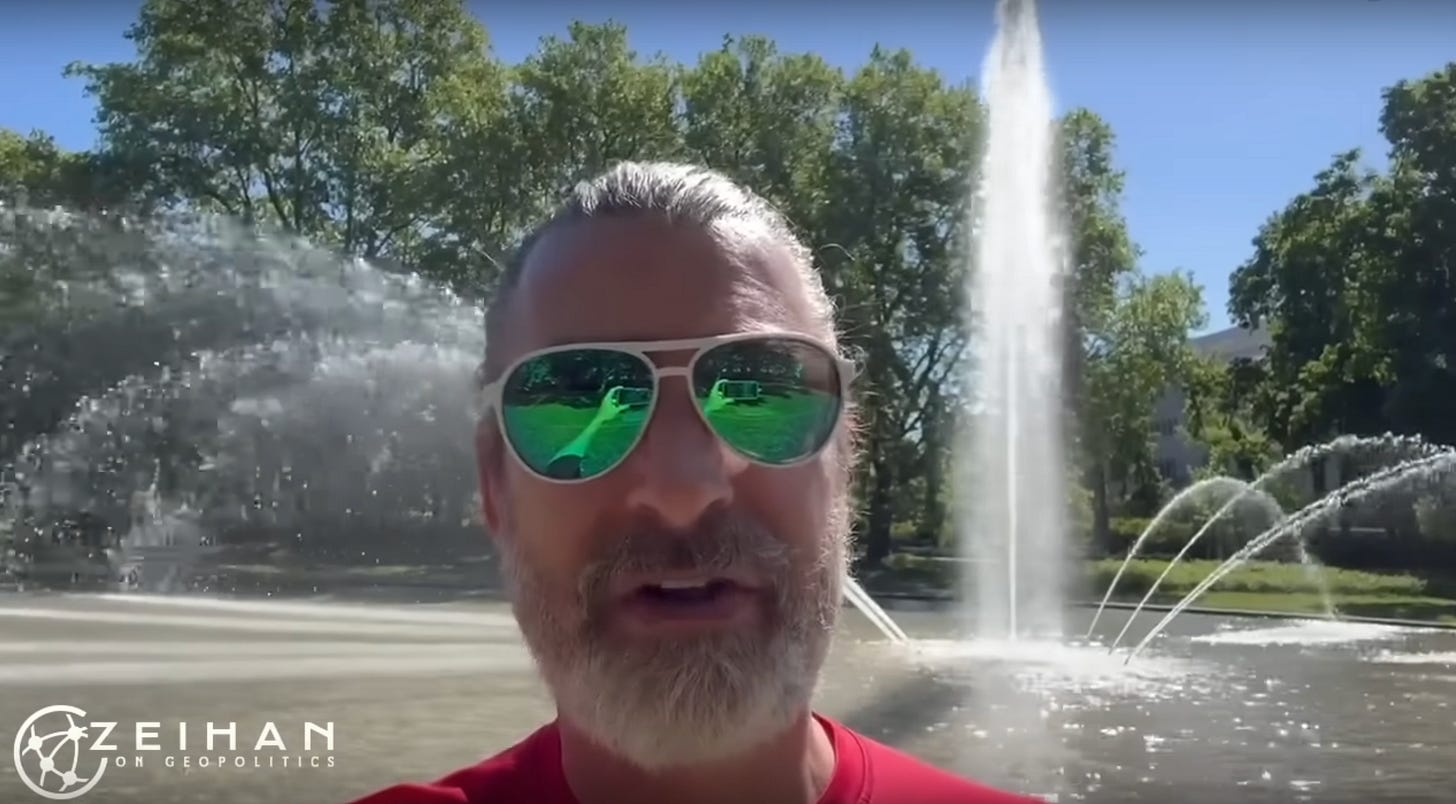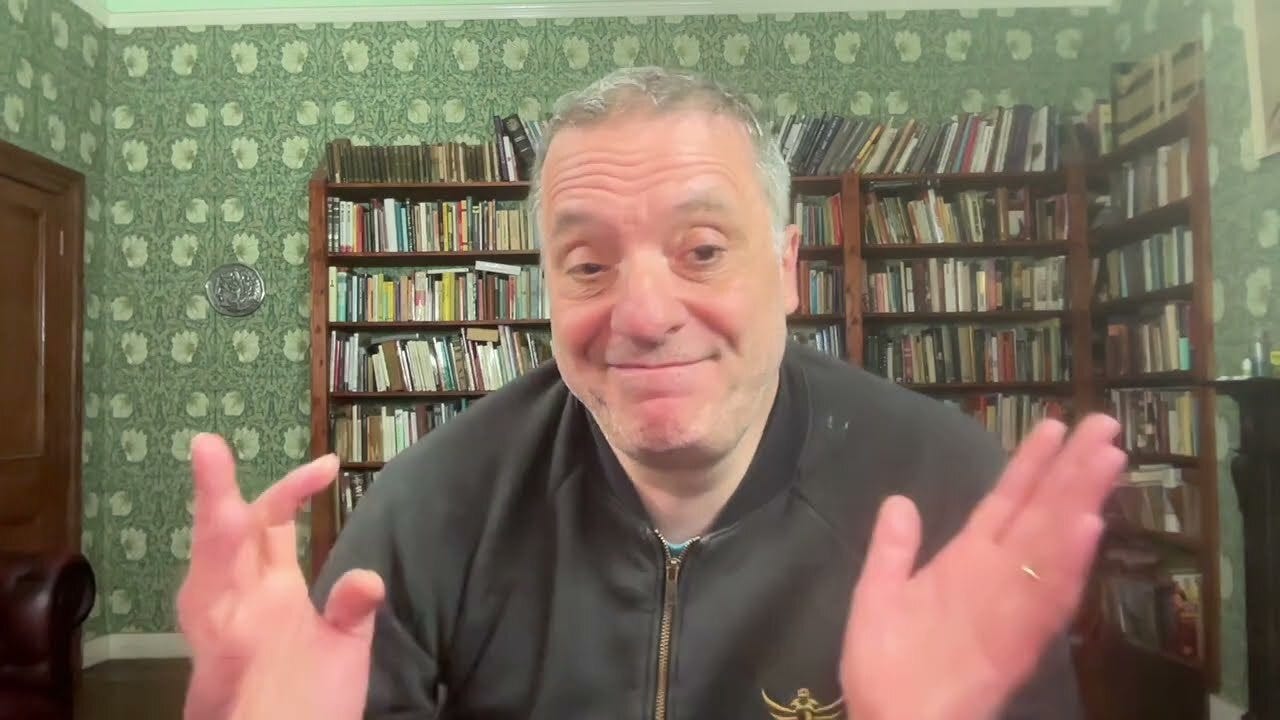Mapping the War
How to understand what’s really going on in Ukraine.
“In tragedy, it's hard to find a good resolution. It's not black and white. It's a big fog of gray.” – Paul Dano
Having accepted that the mainstream media is failing to perform its primary duty to be timely and objectively informative, greater numbers are turning to alternative news personalities. This is certainly true in this time of war when discerning what is true from what others would prefer you to believe can be overwhelming. Dopamine-inducing propaganda is an omnipresent feature of modern media, and emotions stirred by military conflict only increase the difficulty of separating reality from the innumerable synthetic varieties. It is not uncommon to find wildly different descriptions of the same event from seemingly credible sources.
Take the recent cabinet shakeup in Russia. After being inaugurated for his fifth term, Russian President Vladimir Putin kept most of his government in place, with one critical exception: Sergei Shoigu was replaced as defense minister and appointed Secretary of Russia’s Security Council. Shoigu had served in his prior role since 2012 and is reported to be personally close to Putin. What to make of this notable move? Here we find wide interpretations on the matter.
One popular alt-media voice on related news is geopolitical strategist and bestselling author Peter Zeihan. Published via his YouTube channel to more than 775,000 subscribers, Zeihan characterizes Shoigu as “arguably the least competent public servant in the world at the moment” who “doesn't know what he's doing.” Zeihan goes on to inform his viewers that “the only thing he's good at is stealing maybe one-third of the appropriation budgets for the years that he has been in defense,” and that Shoigu “is probably the single biggest factor in play now why the Russians have not been doing well in the Ukraine war.” Zeihan concludes that the shakeup is likely bad news for Ukraine, so long as Shoigu is “replaced with like an average third grader who doesn’t even speak Russian,” as this could lead to “a significant increase in Russia’s capacity to execute this war.”
Alexander Mercouris, a decidedly pro-Russian commentator who publishes daily monologues to more than 260,000 subscribers on his popular YouTube channel, also weighed in on the transition. Opening his program on May 13 by addressing the Shoigu issue, Mercouris claims that the “supposed dismissal is in some respects a promotion” because the Security Council sits “at the center of Russian government and at the center of the Russian political system” and is “responsible for the whole range of Russian policy, Russian government policy, foreign policy, and domestic.” He further emphasized that “members of the Security Council are the most powerful and important people in Russia,” and the position of Secretary carries substantial pedigree and significance.
Which of these opposing views is closer to the truth? Shoigu recently accompanied Putin to China and sat directly beside him in several high-level meetings, lending weight to Mercouris’ view—but palace intrigue within the Kremlin is far from our domain of expertise. When Zeihan has commented on things we do have some knowledge about—Russia’s technical capacity in the energy sector, for example, or the expected impact of sanctions on the Russian economy—we have found his assessments to be lacking in plausibility and in conflict with our own direct experiences in industry, sometimes surprisingly so. We leave it to the readers to watch both videos and decide for themselves.
The ability to assess the bias of an information source, buttress it with independently gathered facts, and draw conclusions based on the totality of the data are important skills for any analyst to learn, and the war in Ukraine presents an important opportunity to do so. If the Gulf War of 1990 was the first television war, the conflict in Ukraine is surely the first to be fully tracked on the internet. Each day and across all manner of social media platforms, groups of analysts with varying biases track troop movements, measure casualties, and contextualize news headlines through the lens of satellite data, battlefield video recordings, geolocation techniques (often with the help of artificial intelligence tools), and testimonies from field reporters and soldiers alike.
Given the conflict’s influence on the energy markets, we have spent the past several months exploring this new world of online war mappers. We have been surprised by the quality of real-time information available and the self-correcting nature of the mapping ecosystem. Following certain high-profile contributors has allowed us to learn of important events long before they hit the traditional media outlets. In other words, a measureable edge can be developed if you are willing to put in the work. The summary that follows is the result of ours.



